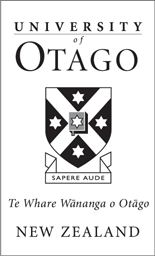Kwongnui Sim (HEDC)
Widespread use of Information and Communication Technologies (ICT) has changed the way we work, learn and communicate. In higher education, ICT has had a dramatic impact on teaching and learning. Research has indicated that ICT is a necessary part of academic practice in higher education. Under normal circumstances, PhD students have to use ICT (e.g. computer technology) throughout their research journey (i.e. preparation phase, fieldwork phase, analysis phase, and write-up phase). Nevertheless, there is little attention being given to their use of ICT in this research process. With their ready access to new technologies, PhD students are well positioned to take advantage of existing varieties of ICT in order to efficiently (in terms of means to an end) and effectively (in terms of reaching goals within a task) carry out their research. A considerable portion of the current literature on computer use in academia suggests that students’ use of technology will result in students being efficient in their learning (Smith, Salaway, & Caruso, 2009). In addition, a number of studies claim that computer technology now plays a significant role in supporting undergraduate study (Aspden & Thorpe, 2009; Dahlstrom, Grunwald, de Boor, & Vockley, 2011; Guidry & BrckaLorenz, 2010; Smith & Caruso, 2010). It seems ideal that ICT should also help PhD students to complete their research journey in the best possible ways (Jackson, 2005; Onilude & Apampa, 2010). But to what extent PhD students utilise ICT to support their research process is unclear. This poster seeks to summarise the findings and the key points from a review of significant parts of the existing literature associated with ICT use among graduate/postgraduate students. With that, it aims to provide the background to a planned investigation through a data-driven emergent design that takes a new angle of looking at the role that ICT plays in supporting PhD students’ research processes at the University of Otago. The focus of the study will be on the context(s) in which PhD students integrate or utilise ICT to support their research process. The study then intends to address the gap in the literature about how ICT plays a role in PhD students’ lives.
References
Aspden, E. J., & Thorpe, L. (2009). “Where do you learn?”: Tweeting to inform learning space development. Retrieved August 6, 2013, from http://www.educause.edu/ero/article/where-do-you-learn-tweeting-inform-learning-space-development
Dahlstrom, E., Grunwald, P., de Boor, T., & Vockley, M. (2011). ECAR National study of students and information technology in higher education. Boulder, CO: EDUCAUSE Center for Applied Research.
Guidry, K., & BrckaLorenz, A. (2010). A comparison of student and faculty academic technology use across disciplines. Retrieved August 6, 2013, from http://www.educause.edu/ero/article/comparison-student-and-faculty-academic-technology-use-across-disciplines
Jackson, M. (2005). The Impact of ICT on the development of information literacy by students in further education. Journal of eLiteracy, 2(1), 15-26.
Onilude, O. O., & Apampa, O. R. (2010). Effects of information and communication technology on research and development activities: The FIIRO Experience. Retrieved August 6, 2013, from http://www.webpages.uidaho.edu/~mbolin/onilude-apampa.htm
Smith, S. D., & Caruso, J. B. (2010). The ECAR study of undergraduate students and information technology, 2010. Boulder, CO: EDUCAUSE Center for Applied Research.
Smith, S. D., Salaway, G., & Caruso, J. B. (2009). The ECAR study of undergraduate students and information technology, 2009. Boulder, CO: EDUCAUSE Center for Applied Research.

